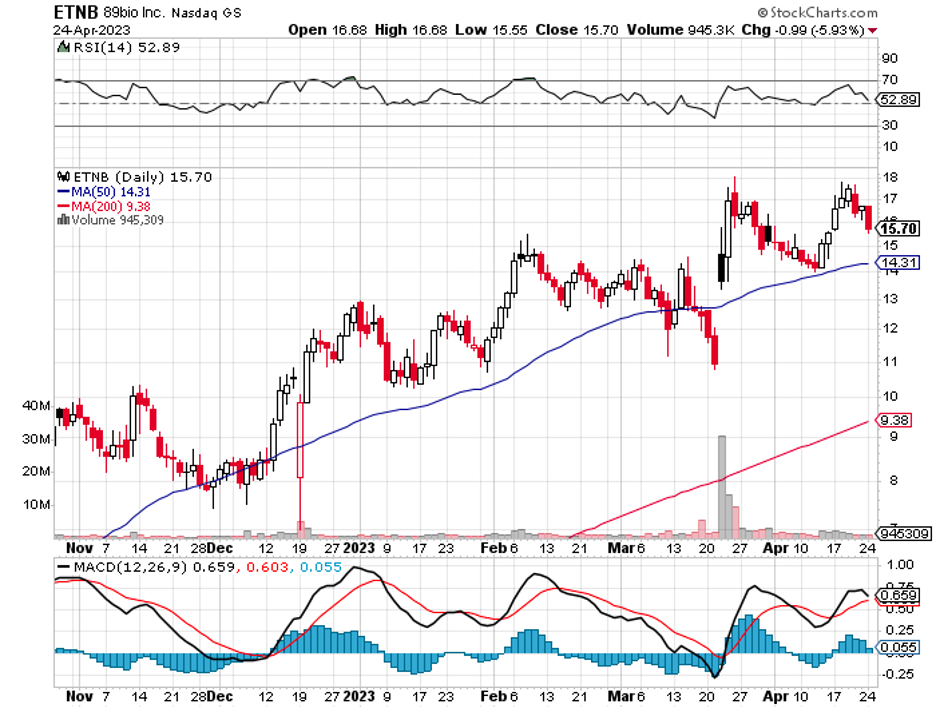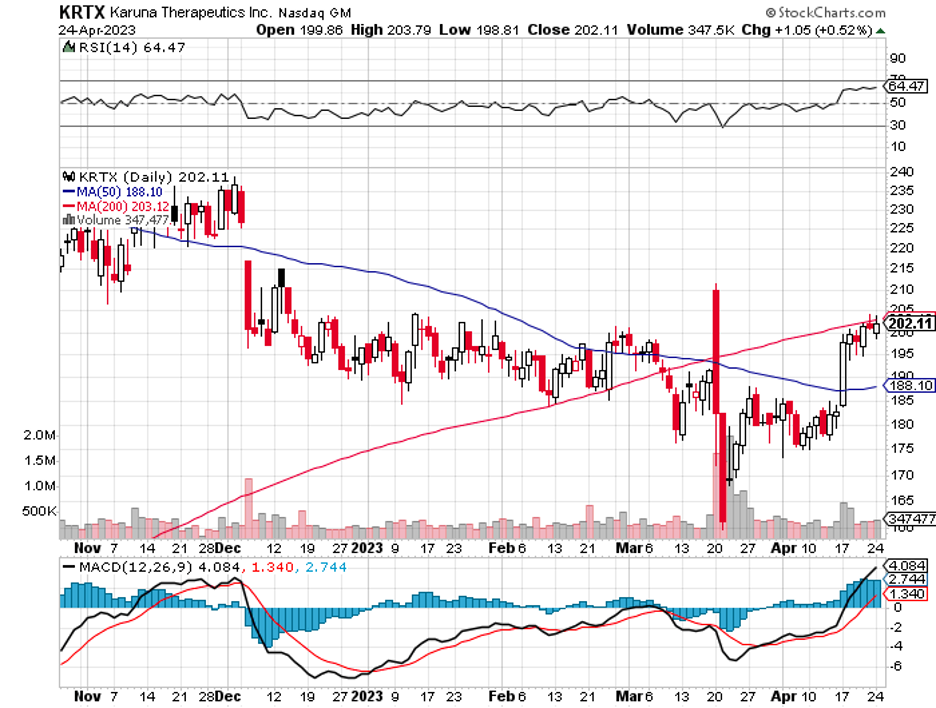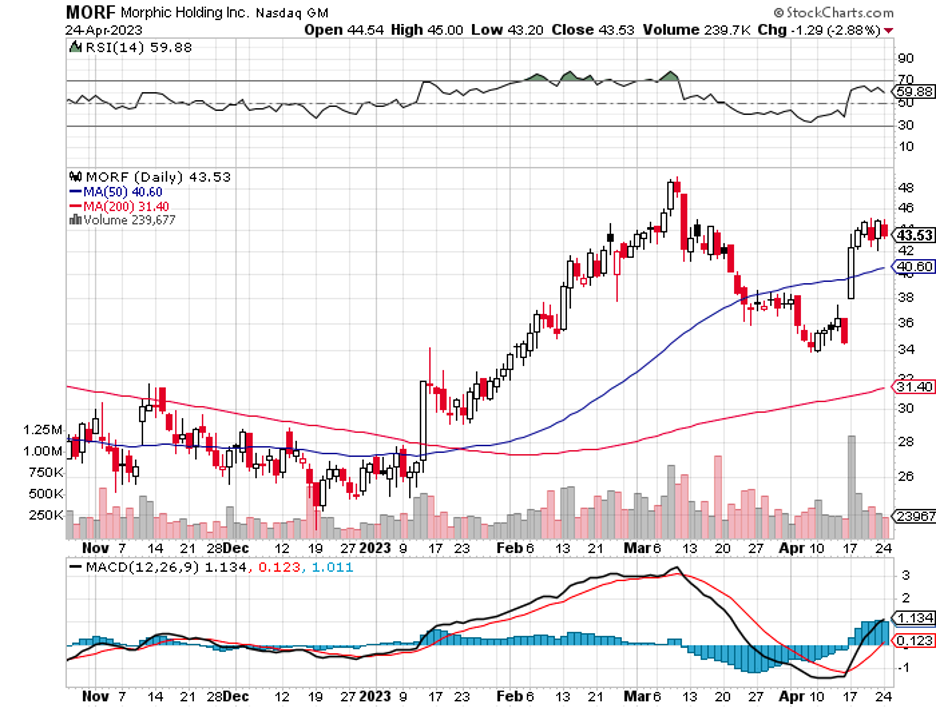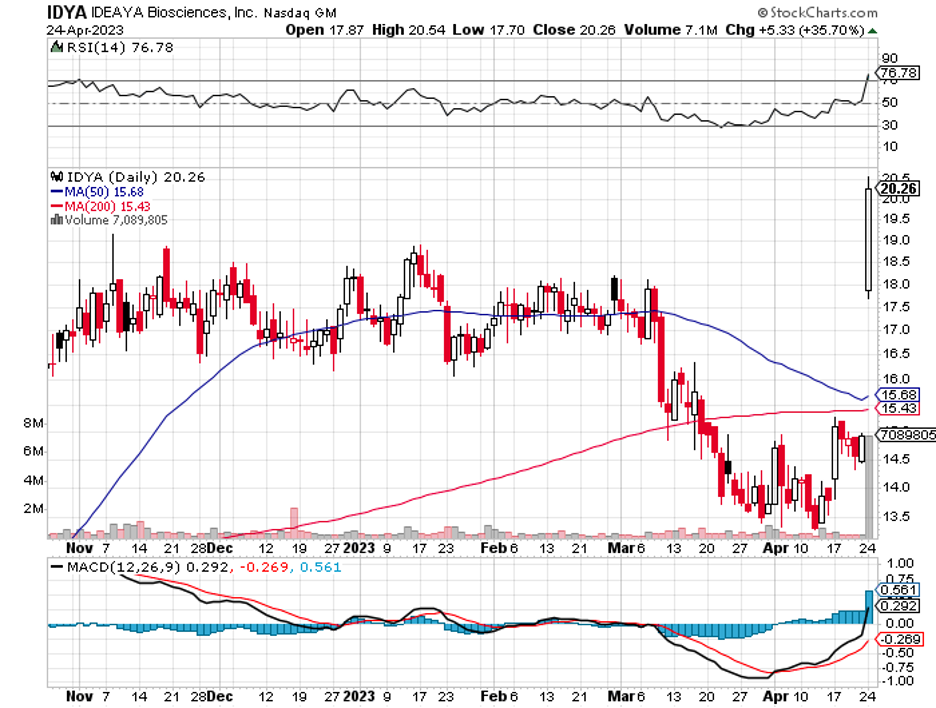Small Biotechs, Big Opportunities
The biopharma sector has seen a flurry of merger and acquisition activity recently, and the trend seems to continue. This is good news for smaller biotech stocks looking to capitalize on the trend.
In the first quarter of 2023, the total healthcare and life sciences M&A in the United States reached roughly $71 billion, more than double the $28 billion seen in the same quarter in 2022. Notably, this figure includes Pfizer's (PFE) acquisition of Seagen (SGEN) for $43 billion.
Still, the situation isn't as dire as it may seem especially considering that in 2022, the total M&A spending in the U.S. dropped to about $300 million year over year from the $400 billion recorded in 2021.
The main culprit behind this trend appears to be higher interest rates, which have made financing a deal less appealing for buyers, particularly when there is the potential for a less optimistic profit outlook due to a slowing economy.
Even with these concerns, pharmaceutical deals have been far from stagnant since the end of the first quarter.
Merck (MRK), a biopharmaceutical company with a market capitalization of $288 billion, announced that it would purchase Prometheus Biosciences (RXDX) for roughly $11 billion, representing a premium of about 75% over the pre-announcement price. The announcement had a considerable impact on Prometheus stock, which saw a surge in value.
Shareholders of Prometheus enjoyed significant gains as Merck seeks to replace its revenue stream from cancer treatment Keytruda, which generates just over $20 billion annually.
Keytruda's patent is set to expire in 2028, leaving room for competitors to gain market share and making Merck's acquisition of Prometheus a critical move. For context, Prometheus's ulcerative colitis product alone has a total available market worth roughly $30 billion.
This deal could be just the beginning of a wave of new mergers and acquisitions in the biotechnology and healthcare industry. Experts note that we are entering a "smart optimism" period in the sector.
It makes sense for larger pharma companies to explore mergers and acquisitions in the current market for several reasons.
For one, many larger companies are seeking to revamp their drug pipelines. Take Bristol Myers Squibb (BMY), for example, which has a market capitalization of $146 billion. Sales of its myeloma treatment, Revlimid, likely peaked at just over $12 billion in 2021. As the patent for Revlimid expires, the company is expected to lose market share, causing sales to plummet to the low hundreds of millions.
While the company has several new drugs in development, it may still seek to acquire smaller firms to safeguard its future. However, given that Bristol has just over $9 billion in cash, any significant acquisitions it pursues could require taking on debt. Such a move would not be unprecedented, as Pfizer financed roughly 70% of its Seagen purchase with long-term debt.
Another big name that could be on the lookout for an attractive deal is Biogen (BIIB), a company with a market capitalization of $42 billion. Biogen is reportedly interested in the neuropsychiatric and inflammatory sectors and could strike a deal as early as the latter half of 2023.
Looking at things from a seller's point of view, many of these companies are now much less valuable than they once were on the public market and, therefore are easier targets for acquisition.
The SPDR S&P Biotech ETF (XBI) has taken a 50% hit from its all-time high set in February 2021. This is mainly due to higher interest rates, which have diminished the perceived value of future profits. Since many small biotechs are valued based on their projected earnings well into the future, this has significantly affected their stock prices.
Some biotech companies have been eyed as potential takeover targets due to their reduced market value.
One is 89bio (ETNB), with a market cap of $1.2 billion and a stock price falling by more than 50% from its all-time high, could be a potential target.
Similarly, Karuna Therapeutics (KRTX), which has a market cap of $7.4 billion and has seen a decline of almost 30% from its all-time high, is also considered an acquisition candidate.
Morphic Holding (MORF), with a market cap of $1.8 billion and a drop of more than 35% from its all-time high, and Ideaya Biosciences (IDYA), which has a market cap of $706 million and has lost almost half its value from its all-time high, could also be targeted for acquisition.
Overall, this is a promising period for the sector. So, take a moment to consider some of the smaller biotech firms in the market. Suppose these companies have a hard time finding interested buyers. In that case, there is still hope for shareholders as there's a chance that a larger corporation may step in and make an acquisition, leading to a substantial payout.





